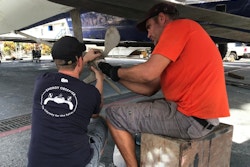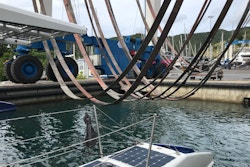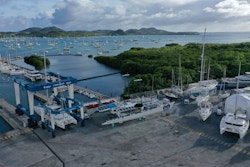5th technical stopover for Energy Observer in Martinique
Our vessel left the water on January the 4th for a three-week technical stopover in Le Marin, Martinique. A short break after a year 2020 marked by the longest navigations since leaving Saint-Malo in 2017.
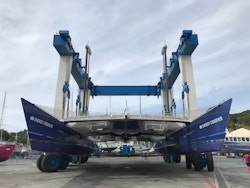
More than 10 000 nautical miles thanks to renewable energies and hydrogen
In an uncertain global context due to the Covid-19 pandemic, the 2020 program of our Odyssey had been completely revised, with the iconic stopovers, notably in Tokyo during the Summer Olympics or on the Californian coast, postponed to 2021.
These events did not prevent our experimental vessel and its crew from continuing its documenting and research missions, while adapting to health directives day after day.
In 2020, our vessel made the longest sailings in her history with her first transatlantic crossing and the exploration of overseas territories as far as French Guiana, covering more than 10,000 nautical miles. And the year 2021 will see even more ambitious crossings!
A performance achieved thanks to the total energy autonomy of our onboard systems, an example of resilience that is particularly well suited to the current situation and reassuring for the continuation of the Odyssey.
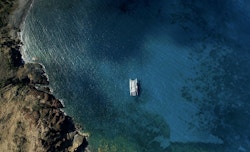
Energy Observer in the Caribbean Sea
A technical stopover to prepare a year of great journeys
This technical stopover aims to prepare the systems and the vessel for even longer voyages, including the Pacific crossing.
This starts with the simplification and optimization of the hydrogen chain thanks to the performance of the REX H2, developed by EODev with Toyota, which has proven itself over more than 10,000 nautical miles of navigation in 2020.

🇬🇧 ON BOARD l A bit of rest for the #ship ⛵
Currently in Martinique, our team of technicians, engineers and #sailors are beginning to work on the new winter #yard of the vessel.
#sail #cleantech #boat #Martinique #engineering
The variable-pitch propellers, installed in 2019, will also be the subject of in-depth performance and corrosion studies, while a maintenance operation will be carried out on certain photovoltaic panels. The tropical conditions that have prevailed since last spring have made it possible to work on the innovative encapsulation of flexible solar panels, which have been put to the test by high temperatures and strong radiation.
Finally, a new systems engineer is about to join the team and will be present throughout this technical stopover.
This stopover is also one of the last opportunities to optimize this exploration platform, whose construction dates back to, let's not forget, 1983, , before its long voyages in the Pacific and Asia.
The launch and announcement of the highlights of the 2021 chapter of our Odyssey will take place starting from January 27th, stay tuned!
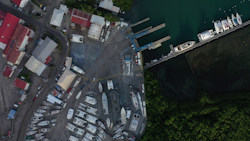
Drone view of the shipyard
